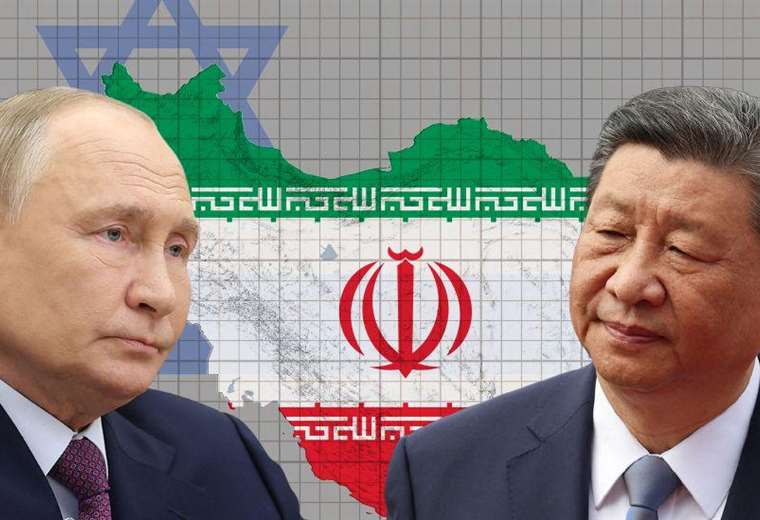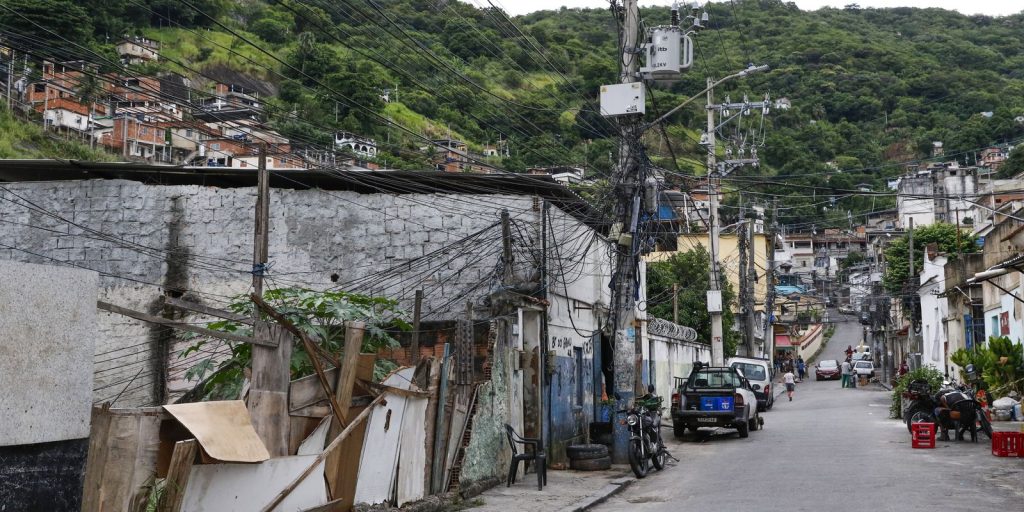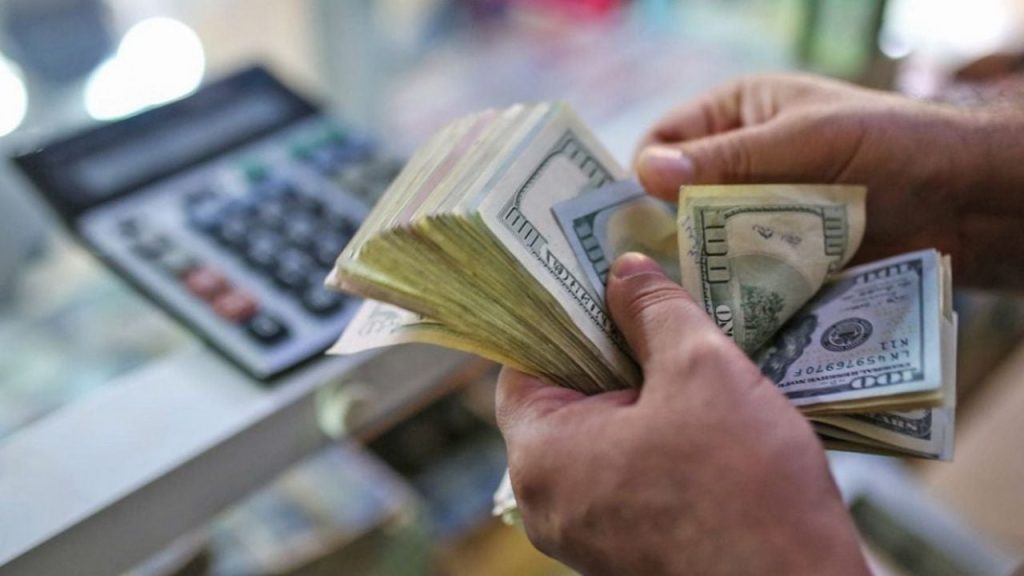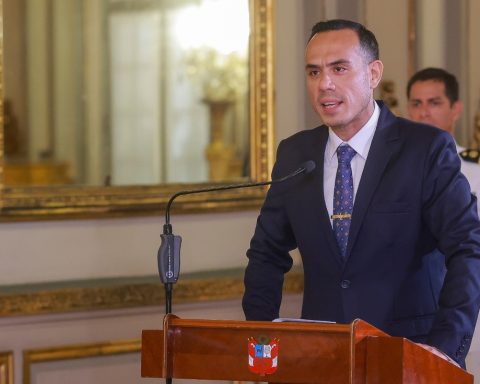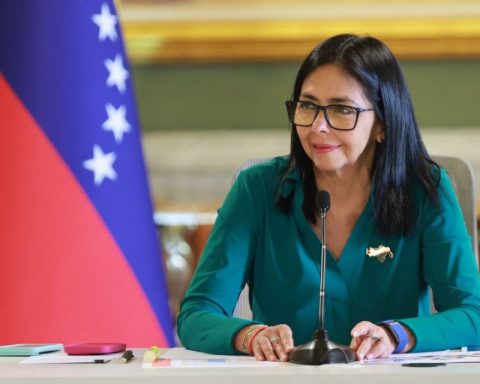November 4, 2024, 7:49 AM
November 4, 2024, 7:49 AM
Israel recently carried out what it described as “precise strikes” against military targets in Iran, in response to the barrage of nearly 200 missiles launched by Tehran on October 1.
Iran’s Revolutionary Guard in turn said its attacks were in retaliation for the killings of the leaders of two Iranian-backed armed groups: Hamas based in Gaza and Hezbollah in Lebanon.
Hezbollah has been firing rockets across Israel’s northern border since Hamas attacked Israel from Gaza on October 7, 2023.
The conflict, which is increasingly intensifying, It is putting pressure on relations around the world, even between major powers.
The United States has declared its support for Israel, but what is at stake for Russia and China and how might they respond?

Russia: an alliance of convenience, but with an eye on Ukraine
Russia and Iran are not formal allies, but their ties have deepened in recent years and they are in the process of finalizing a “strategic partnership” agreement.
When Russian President Vladimir Putin met Iran’s new president, Masoud Pezeshkian, on October 11, the two discussed the closeness of their positions on world events.
Iran has de facto allied itself with Russia when it comes to Ukraine. The United States and Britain say Tehran has provided Moscow with ballistic missiles and hundreds of attack drones.
The Iranian government officially denies sending ballistic missiles, although an Iranian lawmaker said the weapons are transferred in exchange for food imports to Iran.
Iran’s air force is depleted after years of sanctions and Russia appears to have sent it at least one light attack aircraft recently, according to Janes Defensea publication specialized in military topics.
In exchange for arms shipments, Moscow expected to block any UN resolution criticizing Iran and oppose any use of force against that country.
For Russia, the conflict in the Middle East also helps divert Western attention and resources away from Ukraine, where Russian forces have made gradual gains on the front lines in recent months.
However, the Kremlin will be concerned about the possible impact of recent Israeli attacks on transportation infrastructure within Iran.
Russia is subject to heavy international sanctions and has limited routes to sell its oil, one of which heads to India via Iran.
Tehran backs a number of armed militias in the Middle East, including the Lebanese group Hezbollah and Hamas in Gaza.
Moscow also appears to be forging closer ties with Hamas.
In fact, earlier this year, a delegation of that organization’s top leaders visited Moscow.
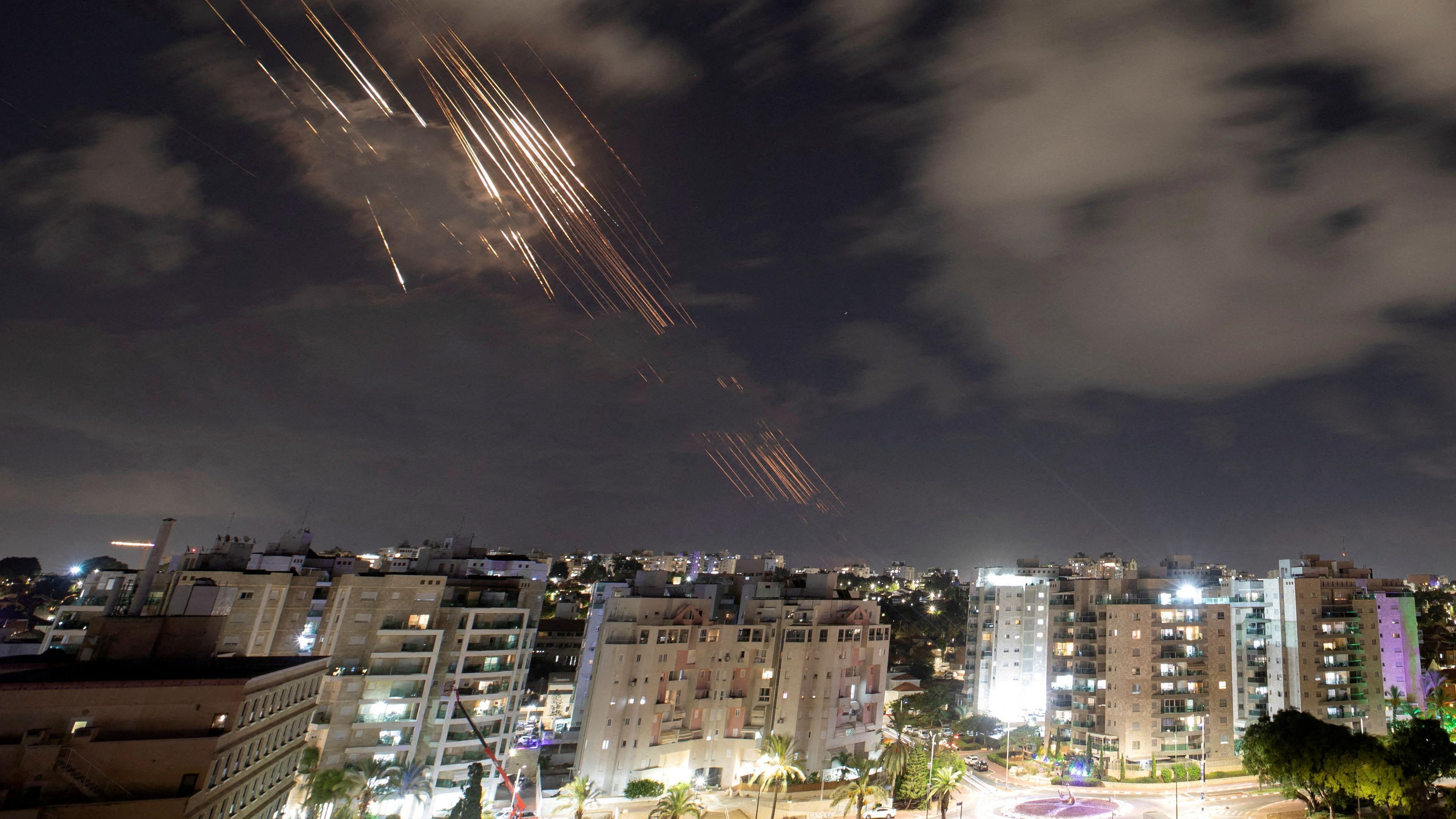
But, although Russia needs Iran more than Israel, it seeks to preserve relations with both countries.
Israel, while critical of Russia’s war in Ukraine and its alliance with Iran, has so far refused to provide Ukraine with military equipment, despite requests it has received.
Russia may consider it possible that if it sides more with Iran, Israel will start sending weapons to Ukraine in response, although a major war in the Middle East could limit Israel’s ability to do so.
Russian and Iranian interests also clash in the South Caucasus, which has become a key trade and energy hub for a Russia under sanctions.
Azerbaijan, the richest and most populous nation in the region, shares borders with Russia and Iran and has agreed to develop a north-south transport corridor to improve road, rail and maritime transport links between the two countries.
However, Azerbaijan also has close military ties with Israelwhich has long supplied its military with drones and other advanced weapons.
In September 2023, Azerbaijan recaptured the disputed enclave of Nagorno-Karabakh, ending three decades of ethnic Armenian rule.
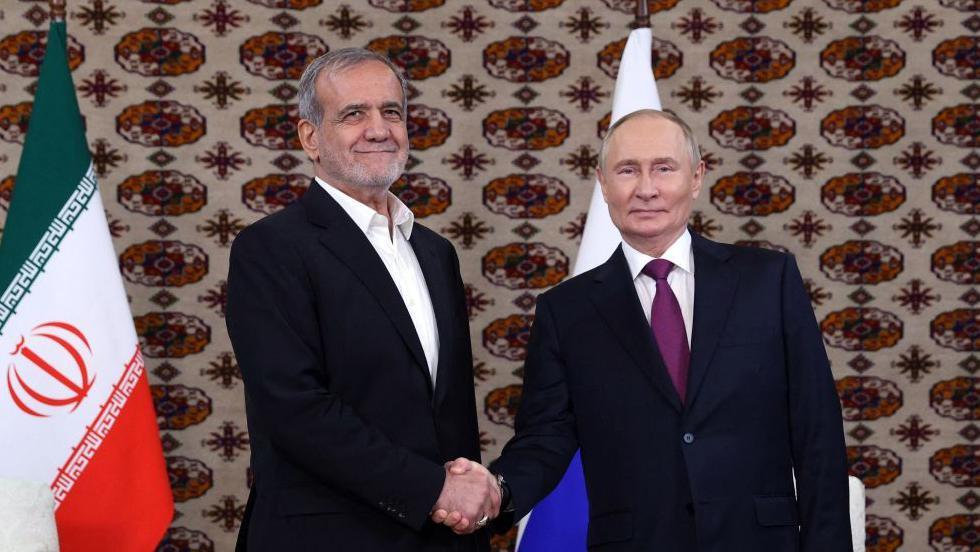
An analysis of flight tracking data by the news agency Associated Press found an increase in arms shipments from Israel before the operation.
Iran has also accused Azerbaijan in the past of allowing Israel to use its military facilities to spy on it, something Azerbaijan denies.
For Russia, this relationship may mean it must act cautiously if another Israeli attack on Iran puts pressure on its relationship with Azerbaijan.
But in this conflict, as in others, Russia will also follow China closely.
Moscow is highly dependent on China in technological, political and strategic termsespecially with regard to imports of electronic components and weapons.
When China expresses its concern, we can expect Russia to listen.

China: support Iran without being dragged into the conflict
China and Iran have long had a close relationship, from diplomatic partnership to economic ties. Now that Israel has attacked Iran, China’s stance is not expected to change dramatically.
Beijing likely to continue offering rhetorical support to Iran, while maintaining a safe distance to avoid being drawn into a broader conflict.
When asked to comment on Iran’s Oct. 1 missile attacks on Israel, the Chinese Foreign Ministry spokesperson did not mention Iran, but said Beijing opposes the “violation of Lebanon’s sovereignty,” in reference to the Israeli invasion of that country.
They cited Gaza as the “root cause of this round of unrest in the Middle East.”
A similar stance has been clear in official messaging from Beijing, including state media, since the Hamas attacks of October 7, 2023, which China did not condemn..
Beijing has repeatedly called for de-escalation and ceasefire, and has supported the Palestinians and Lebanon diplomatically and with humanitarian aid.
But will this confrontation between Israel and Iran provoke tougher rhetoric from China?
China has significant investments in Israelespecially in the infrastructure and technology sectors, and has maintained them throughout the conflict.
It may want to avoid the risk of distancing itself from Israel as an economic partner by aligning itself more fully with Tehran.
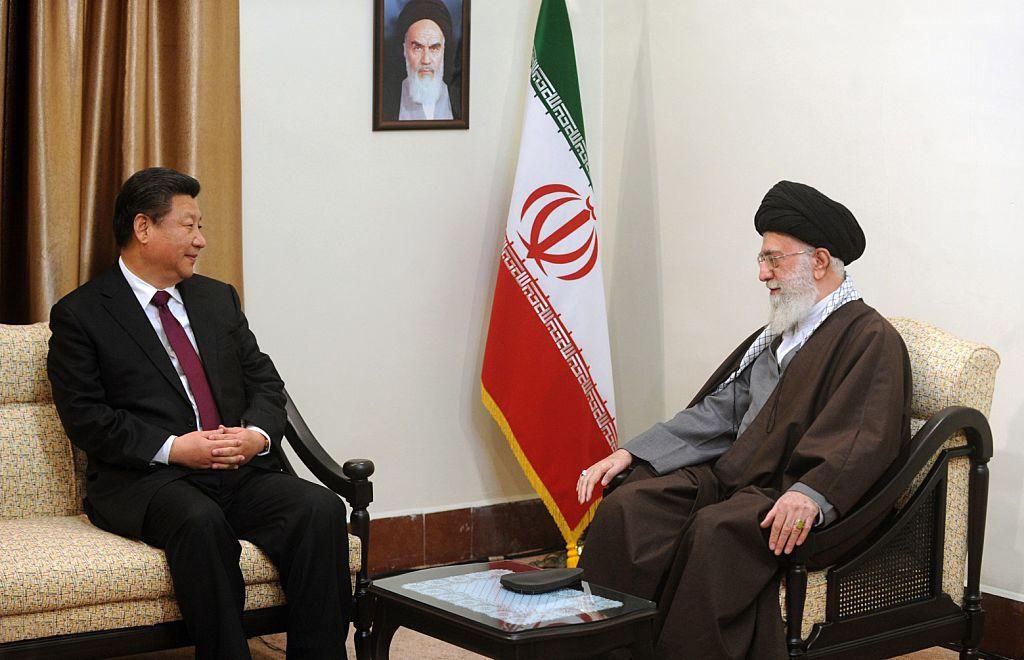
In this round of retaliation, Israel did not attack Iran’s oil infrastructurebut that does not rule out the possibility of future attacks against those facilities.
China relies heavily on crude oil imports and is the destination for about 90% of Iran’s crude oil exports, according to S&P Global, a financial data firm.
If Israel’s retaliatory strikes damage oil infrastructure in a way that could affect those exports, Beijing will be more likely to raise its voice to denounce Israel’s actions.
China remains one of the only countries to buy oil from Iran despite US sanctions and also negotiated a deal that restored diplomatic relations between Iran and Saudi Arabia in 2023.
Media reports citing US officials suggest that Washington has already asked China to use its influence over Tehran, for example, to rein in Iran-backed Houthi rebels in Yemen who have been attacking ships in the Red Sea.
While Washington may make more requests, Tehran is not answerable to Beijing and China is unlikely to heed such a request, especially if it comes from the United States.
At the very least, China will take this opportunity to criticize the United States and increase its global influence by openly supporting the Palestinian cause in a way that resonates with the countries of the so-called global South.
For China, maintaining its current observer status does not entail many risks.
After all, Beijing could still turn to other major oil exporters, such as Saudi Arabia or Russia, if necessary.
In short, whatever language we hear from Beijing in the coming days, China is unlikely to become more substantially involved in the conflict.

Subscribe here to our new newsletter to receive a selection of our best content of the week every Friday.
And remember that you can receive notifications in our app. Download the latest version and activate them.
